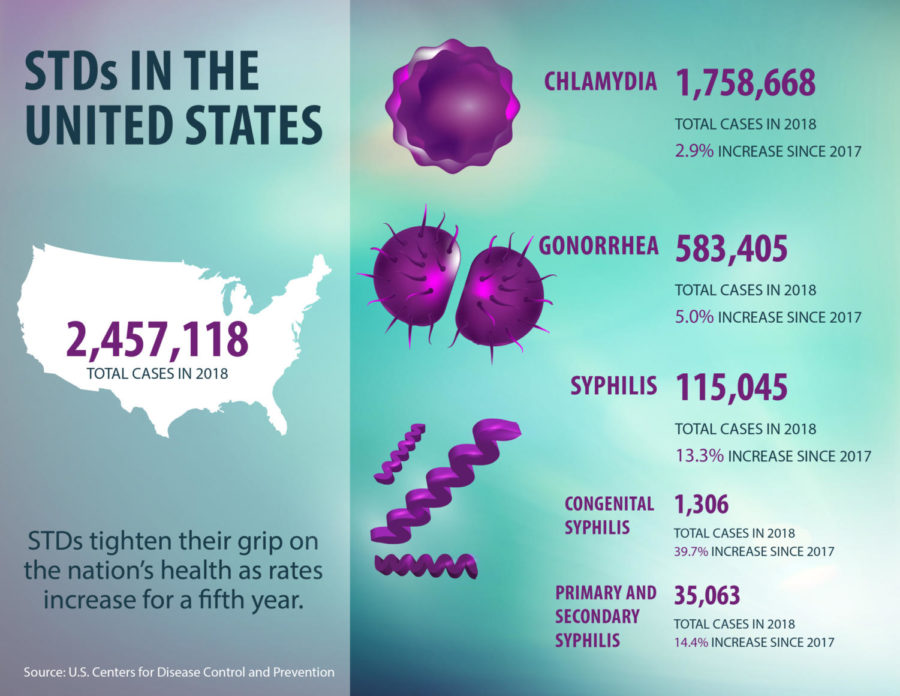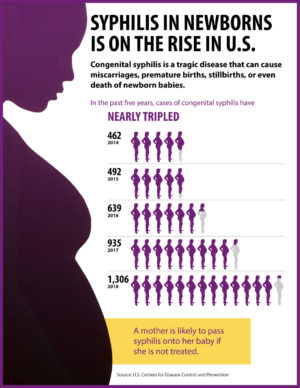Student emphasizes STD testing
Editor’s note: This story acknowledges the existence of sex and sexually transmitted diseases.
A student sits nervously on the edge of his bed, as his leg shakes and causes the black mini fridge to move. Suddenly a call comes and Stephen Ortiz’s* heart drops. He answers with an unsure, shaky hello. He was ready to receive his sexually transmitted disease (STD) test results but the feeling in his stomach gave him the idea that he wouldn’t hear good news.
“You did not test positive for HIV,” the doctor says reassuringly, lifting the weight off of the student’s chest. His breath slowly comes back to normal.
“However,” the doctor says, shattering that small moment of normalcy. “You did test positive for syphilis and herpes.”
She quickly tells Ortiz that he should get the treatment and medicine he needs for the sexually transmitted infection and the sexually transmitted disease.
The pressure returns to Ortiz as tears fill the corners of his eyes. He is thankful that he took the steps to get treated, but he wishes he would have been more open with his partner and practiced safer sexual health.
This story of Ortiz is an actual true event. While he asked Crusader not to use his real name to keep from being “labeled” on campus, he feels the topic should be discussed.
Sexual health is an important to discuss when anyone is sexually active, especially when they are in a college atmosphere where new relationships are formed with strangers. It’s always important that safe sex is practiced such as using protection, like condoms, talking to one’s partner about their sexual health or getting tested before moving the relationship further to sexual activities.

CDC’s surveillance data found recent increases in STDs have continued for five consecutive years — totaling over 2.4 million cases of chlamydia, gonorrhea and syphilis.
Merriam-Webster Dictionary states that a sexually transmitted disease is any of various diseases or infections that can be transmitted by direct sexual contact. The easiest way to avoid any STDs is to have protected sex, even though this method is not a 100% guarantee.
Many STDs can lead to major health problems or uncomfortable rashes or growths. Some of these diseases, like syphilis, can slowly cause complications with a person’s health from organ damage to dementia. There are also harmful sexually transmitted infections such as human papillomavirus, which causes types of cancer and genital warts that lead to serious health problems if not caught early and treated by a health professional.
Other STDs and STIs can result in serious health issues. So, safe sex and other precautions are smart while being sexually active. If a person has any doubt about their sexual health, are concerned about changing sexual partners and maybe infecting them with an unknown STD, then get tested.
“I was scared to ask about my sexual health because sometimes it can be seen as ‘not good or unholy’ if a person is sexually active outside of marriage,” Ortiz says. “I finally decided to put my health first instead of how people viewed me and made a call to the hospital to ask what I needed to do about getting tested for an STD.”
Many facilities are available in Liberal to tests for sexual health. However, every place is different. The Seward County Health Department offers testing, counseling, treatment and referrals for STDs. This building does not have pamphlets on STDs by the front desk, so a scheduled visit or walk-in to speak to a healthcare professional would be necessary to get the information.
The path of treatment that Ortiz took was a two-step process. Since the SCHD did not conduct as many tests as the hospital could, he decided to ask Liberal’s Southwest Medical Center what to do. The hospital suggested Ortiz come to the hospital for testing but it would be the cost of an emergency room visit bill without a doctor’s referral.

In the past four years, cases of congenital syphilis have nearly tripled (462 cases in 2014 to 1,306 cases in 2018). Congenital syphilis can result in miscarriage, newborn death, and severe lifelong health complications.
“Instead of waiting for weeks to meet with a doctor and getting a bill in the mail, I decided to go with the second choice the hospital gave me, which was Urgent Care,” Ortiz says. “With urgent care being covered by my insurance, I knew that this was the only way for me since I am a broke college student.”
Any person wanting to receive an STD test should go to urgent care on either 445 W 15th St. by the hospital or 2132 N. Kansas Ave. by Billy’s Ayr Lanes.
Ortiz explains the process is fairly easy: Fill out basic paperwork. Know social security number and have insurance card on hand or even a picture of the card. Then, have an exam.
A person simply states if they have any symptoms of STDs or are just doing a check on their sexual health. After the urgent care visit, the doctor sends the person directly to the hospital to sign paperwork and get his or her labs drawn—blood and urine sample.
After the labs are completed, simply wait for the doctor to give a call with the results.
“My recommendation is to go to urgent care and the hospital to get tested at night. There are hardly any people around if you want to keep your testing on the low and the waiting time is short,” Ortiz says.
If all tests come back negative, then no further actions have to be taken. A person can go home knowing they have good sexual health. If any tests come back positive, then the patient goes back to see the urgent care doctor and discusses what treatments need to be done. Usually, a person will take a standard pill prescribed by the doctor and possibly shots to counteract the disease or infection.
The STDs test is either free or fairly cheap. It depends on a person’s insurance plan and what it covers.
Ortiz reminds fellow students that sexual health is important. He encourages those who are sexually active, to use protection to help prevent STDs/STIs and to always be aware of who a person is involved with. Above all else, if anyone displays STD sympotoms … get tested.
*Student’s name has been changed

Preston Burrows is an 18-year-old sophomore at SCCC, who was born in Johnson City. He attended Rolla High School until he...














![The sophomores were recognized on the field instead of walking across the stage during their doubleheader. They received their diplomas and a picture of themselves playing during their career at Seward. [Pictured left to right are Dylan Day, Reed Thomas, Jase Schneider, Mason Martinez, Gannon Hardin, Brody Boisvert, and Zach Walker]](https://crusadernews.com/wp-content/uploads/2022/05/WEBDSC_0275-900x454.jpg)






































![Marcos Montoya takes a break from working on his personal health from working at the gym. He says “That’s [the gym] my second home, basically. I’m there more than I am at my own house.”](https://crusadernews.com/wp-content/uploads/2023/09/web1UpCloseMarcos1-1200x800.jpg)




























